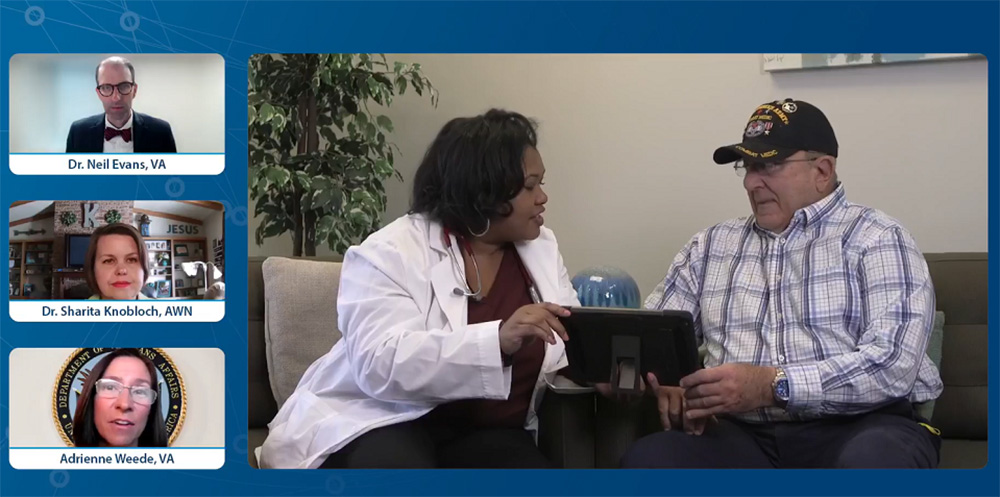Military life can be full of transitions. From deployments to retirement, these times can bring about both new opportunities and challenges. Active duty service members have long enjoyed the support of sponsors during their military service transitions. But similar support has not been provided for the final transition to civilian life.
The Veteran Sponsorship Initiative (VSI) within the Veterans Health Administration (VHA) is beginning to change that, with promising results.
By collaborating with community-based Veterans organizations, VHA helps transitioning service members and their families secure housing, find jobs, pursue educational opportunities and access mental health support.
When service members separate or retire from service, there is no individual assigned responsibility for their transition into the civilian world. This transition can be challenging, as service members lose the benefits of military leadership, camaraderie, support and structure.
These losses can lead to increased stressors, a decreased sense of purpose and an elevated risk for suicide and other mental health concerns when service members rejoin the civilian community.
To better meet the needs of transitioning Service members and their families, VHA collaborates with the U.S. Department of Defense; academia, including Syracuse and Columbia universities; local governments; and nonprofits, to provide peer-based transition assistance. VHA is measuring the impact of these collaborations through the VSI program evaluation.
VSI is a nation-wide initiative and continues to grow. More information on the network of community partners that organize and manage peers that support successful military-to-civilian transitions can be found on the Veteran Sponsor Partnership Network website: https://www.va.gov/HEALTHPARTNERSHIPS/
In the photo above, peer sponsors attend a graduation ceremony in New York City.
How does military-to-civilian sponsorship work?
After signing up at their military installation, the program matches Service members with a trained sponsor. Sponsors at the Service member’s identified post-military hometown are selected based on the Service member’s job interests, gender and other characteristics, interests and needs.
Sponsorship sessions occur virtually until the service member arrives home. Thereafter, thanks to the support of community partners like Starbucks, in-person sessions can continue in local coffee shops or at other locations in the Service member’s community.
VHA provides training to sponsors, which are managed by community partner organizations, so the sponsors can better support Service members, Veterans, and their families. Sponsors are trained in several topics including:
- Transitioning tasks, such as education, employment, housing, legal support and medical/mental health support.
- Overcoming the stigma that they may associate with seeking mental health support when they need it.
- How to effectively connect service members to VA benefits and local community resources.
- Responding to any signs of possible suicide risk.
How can I get involved?
If you are serving in the military and would like a sponsor to help you successfully transition to your new hometown, visit the VSPN website for more information on the community organizations that can provide trained sponsors.
If you would like to volunteer with a community organization as a sponsor to help service members successfully transition, check out the fact sheet for potential sponsors
To access mental health information and resources for transitioning service members, visit the Transitioning Service Member overview page.
To hear Veterans’ stories about transitioning from military service, visit the Transitioning From Service page on the Make the Connection website.
To read more stories on transition assistance, visit https://news.va.gov/?s=transition.
– Joseph Geraci, Ph.D., LMHC, is a psychologist, a New York state-licensed mental health counselor and a retired U.S. Army (infantry) lieutenant colonel. Geraci works in VA VISN 2’s MIRECC Center of Excellence in the Bronx, New York.
– Marianne Goodman, M.D., is a psychiatrist and associate director of VA VISN 2’s MIRECC Center of Excellence. She is a professor and the director of the Suicide Prevention Clinical and Research Program.
– Richard Seim, Ph.D., is the acting director and education and dissemination core leader of the VA VISN 17 Center of Excellence for Research on Returning War Veterans in Waco, Texas.
Topics in this story
More Stories
Bob Jesse Award celebrates the achievements of a VA employee and a team or department that exemplifies innovative practices within VA.
The Medical Foster Home program offers Veterans an alternative to nursing homes.
Watch the Under Secretary for Health and a panel of experts discuss VA Health Connect tele-emergency care.







Don’t forget about the Post-9/11 Military2 VA (M2VA) Case Management Program!
We’ve been helping Veterans transition since 2007! https://www.va.gov/POST911VETERANS/Post_9_11_Military_2VA_M2VA_Case_Management_Program.asp
I am curious why The Vet Center services are not listed for our transitioning service members? We are still part of VA Healthcare are we not? If we are going to provide tools to separating service members from the military, I would think we could provide them with a full circle of tools to transition with success. It saddens me how the Vet Center is so often forgotten by our fellow clinical employees. We can do better than this for our Veterans.